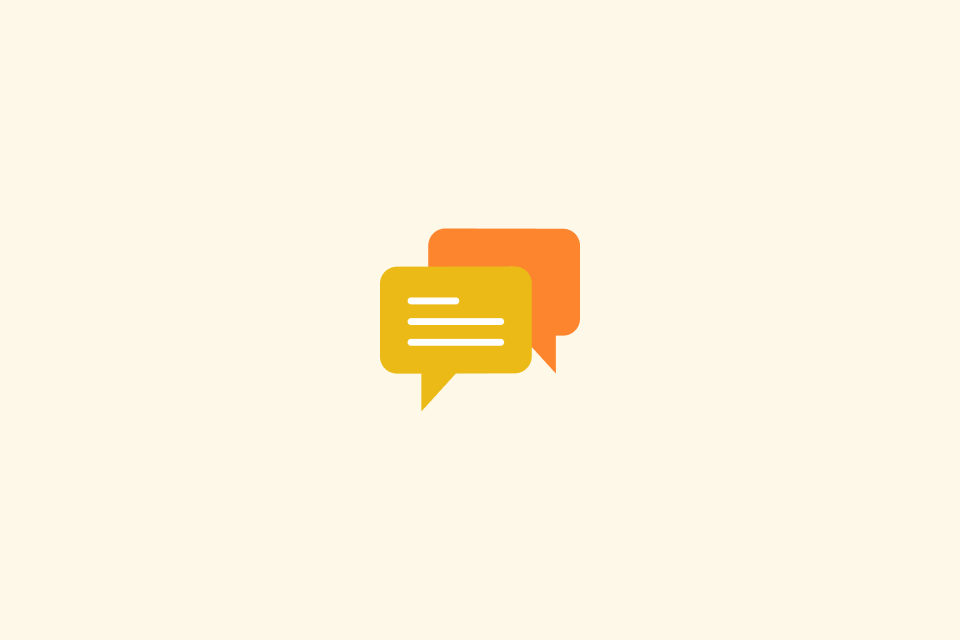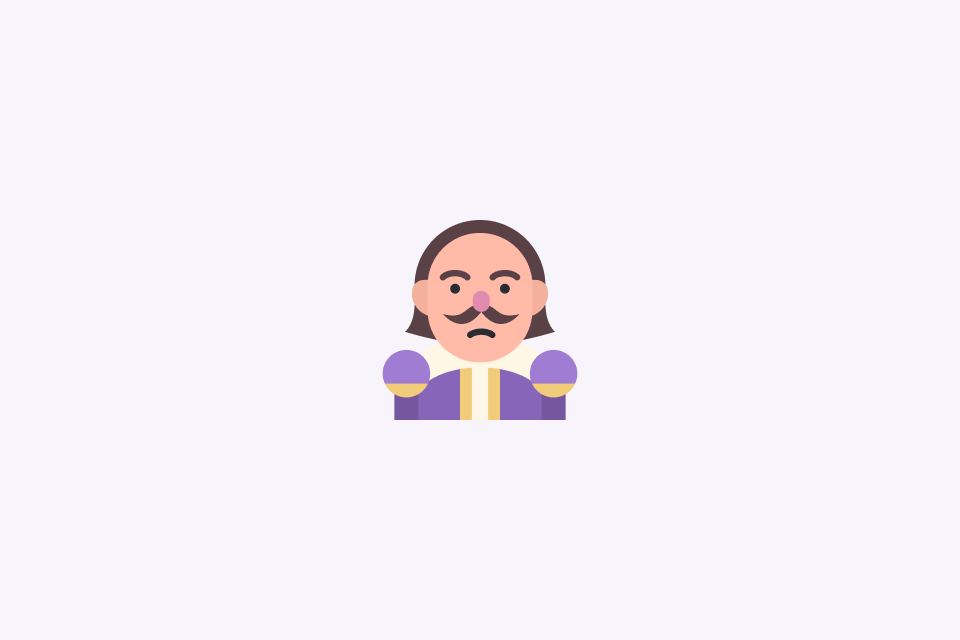100 جملة إنجليزية يومية للمحادثات اليومية

TABLE OF CONTENTS
سواء كنت تقوم بتدفئة الحديث الصغير أو تطلب المساعدة أثناء التنقل، فإن هذه الجمل الـ100 تغطي ما تقوله في الحياة الواقعية. إنها قصيرة وطبيعية وسهلة التكيف. استخدمها كتمارين يومية للتحدث: اقرأ بصوت عالٍ، سجل نفسك، واستبدل بعض الكلمات لجعل كل سطر خاص بك.
نصيحة احترافية: للحصول على نبرة مهذبة، أضف كلمات مهدئة مثل “من فضلك”، “هل يمكنك”، و”هل تمانع”؛ وللوضوح، أكد التفاصيل في النهاية (”…أليس كذلك؟”).
التحيات والمقدمات
الانطباعات الأولى مهمة. استخدم هذه الافتتاحيات الودية لبدء المحادثات، تقديم نفسك، وضبط نغمة دعوة.
- Hi! How’s it going?
- → Pretty good, thanks. You?
- Good morning! How are you?
- → I’m good, thanks for asking.
- Nice to meet you.
- → Nice to meet you too.
- My name is [your name].
- → Nice to meet you, [name].
- Where are you from?
- → I’m from [place].
- What do you do?
- → I’m a [job].
- How have you been?
- → Pretty good, thanks.
- It’s great to see you again.
- → Great to see you too!
الحديث الصغير والطقس
المحادثات العادية تبني العلاقة. تساعدك هذه المواضيع الخفيفة على التواصل دون الذهاب إلى الأمور الشخصية.
- How’s your day going?
- → Not bad, thanks.
- What are you up to today?
- → Just running some errands.
- Is it a busy day?
- → Kind of, yeah.
- Lovely weather today.
- → It really is.
- It’s pretty cold today.
- → Tell me about it.
- Did you watch the game last night?
- → Yeah, it was great!
- How was your weekend?
- → It was nice, thanks.
- Do you have any plans for the weekend?
- → Not yet—maybe just rest.
الطلبات المهذبة والعروض
التهذيب يسهل التفاعلات اليومية. استخدم هذه الجمل لطلب المساعدة أو تقديم المساعدة بشكل طبيعي.
- Could you please help me with this?
- → Sure, what do you need?
- Would you mind opening the window?
- → Not at all.
- Can I ask you a quick question?
- → Go ahead.
- Could I get a glass of water, please?
- → Of course—one moment.
- Would it be okay if I sit here?
- → Yes, go ahead.
- Do you need a hand?
- → Yes, please. Thanks!
- Let me know if you need anything.
- → Will do, thanks.
- Can I get you anything?
- → I’m good, thanks.
- That would be great, thank you.
- → You’re welcome.
- I would really appreciate your help.
- → Happy to help.
التوضيح والتحقق
الوضوح يمنع سوء الفهم. تساعدك هذه السطور على تأكيد التفاصيل والإملاءات والتوقيت بأدب.
- Sorry, I didn’t catch that.
- → No problem—I’ll repeat it.
- Could you say that again, please?
- → Of course.
- Could you speak a little slower?
- → Absolutely.
- What do you mean by that?
- → I mean…
- How do you spell that?
- → It’s [letters].
- Just to confirm, we meet at 3, right?
- → Yes, 3 p.m.
- → Actually, 3:30.
- Did you mean next Monday?
- → Yes, next Monday.
- → No, I meant this Monday.
- Am I following you correctly?
- → Exactly.
الجدولة والخطط
التخطيط الجيد يوفر الوقت. استخدم هذه الجمل للعثور على وقت، وتأكيد اللوجستيات، وإعادة الجدولة برشاقة.
- Are you free tomorrow afternoon?
- → I am after 3.
- What time works best for you?
- → 10 a.m. works.
- Let’s meet at 3 p.m.
- → Works for me.
- → Could we do 3:30?
- Does Friday work for you?
- → Yes, Friday is good.
- → I’d prefer Thursday.
- Can we reschedule?
- → Sure—what time?
- I’ll get back to you by tomorrow.
- → Thanks—appreciate it.
- I’ll put it on my calendar.
- → Great, thanks.
- Let’s touch base later this week.
- → Sounds good.
- Can we do a quick call?
- → Sure—when?
- Can I take a rain check?
- → Of course.
التسوق والمال
اللغة الإنجليزية للتسوق تظهر في كل مكان. تغطي هذه السطور الأسعار، الأحجام، المدفوعات، والإرجاع.
- How much is this?
- → It’s $25.
- → That one is on sale for $15.
- I’m just looking, thanks.
- → No problem—let me know if you need help.
- Do you have this in a medium?
- → Yes—right this way.
- → Sorry, we’re out of medium.
- Is there a discount on this?
- → It’s 10% off today.
- Can I pay by card?
- → Yes, we take all major cards.
- Could I get a receipt, please?
- → Sure—paper or email?
- Where is the fitting room?
- → It’s at the back.
- Can I return or exchange this?
- → Yes, within 30 days.
الطعام والخدمة
من المقاهي إلى المطاعم، تؤدي الطلبات الواضحة إلى خدمة أكثر سلاسة. استخدم هذه السطور للطلب، والسؤال، والدفع.
- A table for two, please.
- → Right this way.
- → There’s a 10‑minute wait.
- Could we see the menu?
- → Of course—here you go.
- What do you recommend?
- → The salmon is very popular.
- I’ll have the chicken salad, please.
- → Great choice.
- Could we have the check, please?
- → Sure—I’ll bring it right over.
- Can we split the bill?
- → Absolutely.
السفر والاتجاهات
في التنقل، الأسئلة الموجزة توصلك إلى حيث تحتاج أن تكون. هذه الخطوط تساعد في الطرق، التوقيت، والتذاكر.
- How do I get to the train station?
- → Take the 10 bus two stops.
- Is it within walking distance?
- → Yes—about 15 minutes.
- → It’s a bit far; better take the bus.
- Which bus should I take?
- → Take the 23 toward downtown.
- How long does it take to get there?
- → Around 20 minutes.
- Is this the right platform?
- → Yes, you’re in the right place.
- → No—try platform 3.
- Is it one-way or round-trip?
- → One-way.
- → Round‑trip is cheaper.
- Could you show me on the map?
- → Sure—right here.
- I think I’m lost.
- → No worries—where are you now?
الهاتف والإنترنت
التواصل عن بعد يحتاج إلى وضوح. استخدم هذه الخطوط لإصلاح مشاكل الصوت وتنسيق الروابط أو الشاشات.
- May I speak to Sarah, please?
- → Speaking.
- → She’s not available—can I take a message?
- You’re breaking up.
- → I’ll move to a better spot.
- I’ll call you back in a minute.
- → Okay—talk soon.
- Can you hear me okay?
- → Loud and clear.
- I’ll send you the link.
- → Thanks—I’ll check it now.
- I’ll share my screen now.
- → I can see it.
جمل إنجليزية يومية في العمل
التواصل المهني يتطلب نبرة مختلفة، مهذبة، واضحة، وموجهة نحو العمل. الجمل التالية تُستخدم بشكل شائع في المكاتب أو بيئات العمل عن بعد وهي مفيدة بشكل خاص للأطفال الأكبر سناً والمراهقين الذين يستعدون للتواصل في العالم الحقيقي.
- Do you have a minute?
- → Sure—what’s up?
- Could you give me a quick update on the project?
- → We’re on track.
- Let’s kick off the meeting.
- → Sounds good.
- Could you walk us through this?
- → Absolutely—step one is…
- What’s the status on this task?
- → It’s done.
- What’s the deadline?
- → End of day Friday.
- I’ll take care of it.
- → Thank you.
- I’ll follow up after the meeting.
- → Great—thanks.
- Let’s take this offline.
- → Agreed.
- What are the action items?
- → I’ll draft the doc; you’ll review.
الآراء والموافقة/الاختلاف
مشاركة الآراء باحترام تبقي المحادثات مثمرة. هذه الخطوط تساعدك على الموافقة، الاختلاف، وطلب الأسباب دون أن تبدو قاسياً.
- I think this is a good idea.
- → I agree.
- In my view, we should wait.
- → That’s fair.
- From my perspective, it’s risky.
- → What risk do you see?
- That makes sense.
- → Glad it helps.
- I agree with you.
- → Appreciate that.
- I see your point, but I disagree.
- → That’s okay—tell me more.
- I’m not sure I follow.
- → Let me clarify.
- Could you explain your reasoning?
- → Sure—here’s how I see it.
- Let’s agree to disagree.
- → Works for me.
- I’m open to other ideas.
- → I have a suggestion.
الطوارئ والمشاكل
في المواقف العاجلة أو المعقدة، اللغة البسيطة والمباشرة هي الأفضل. هذه العبارات تساعدك في طلب المساعدة وشرح المشاكل الشائعة بسرعة.
- I need help.
- → What happened?
- It’s an emergency.
- → Call 911 now.
- Please call emergency services.
- → I’m calling now.
- I’ve lost my wallet.
- → Where did you last see it?
- I don’t feel well.
- → Do you need a doctor?
- There’s a mistake on the bill.
- → Sorry about that—I’ll fix it.
- My phone isn’t working.
- → Try restarting it.
- Can you call a taxi for me?
- → Sure—I’ll order one now.
كيفية الممارسة (7 دقائق في اليوم)
في حوالي سبع دقائق يوميًا: قم بتقليد عشر جمل (قم بتشغيل مقطع أصلي أو تسجيل خاص بك وتحدث بالتزامن)، قم بتبديل كلمة أو كلمتين في كل جملة لتجعلها خاصة بك، سجل نفسك أسبوعيًا للتحقق من السرعة والنطق والوضوح، وجرب ثلاث جمل في محادثة حقيقية. الاستمرارية تتفوق على الكثافة - التكرار اليومي البسيط يبني الطلاقة الحقيقية.
إرشادات سريعة (استخدمها في أي مكان)
اجعلها قصيرة ومهذبة - فكرة واحدة لكل جملة، استخدم “من فضلك/شكرًا” عند الضرورة. اختر النغمة المناسبة: “could/would” أكثر لطفًا من “can/will”. أكد على الأساسيات (الوقت، التاريخ، المكان، الأسعار، الأرقام، المناطق الزمنية)، تجنب الكلمات الغامضة مثل “هذا/ذلك/هو”، واسأل سؤالًا واحدًا في كل مرة.
عكس رسمية الشخص الآخر. في المكالمات أو عبر الإنترنت، قل ما ستفعله قبل أن تفعله (مثلًا، “سأشارك شاشتي الآن”). إذا واجهت صعوبة، استخدم العبارات الآمنة: “دعني أعيد الصياغة”، أو “أعطني ثانية للتحقق.”
الأخطاء الشائعة التي يجب تجنبها
تشمل الأخطاء الشائعة طرح سؤالين في وقت واحد (اسأل، توقف، ثم تابع)، الإفراط في استخدام “جدا/لذلك” بدلاً من كلمة دقيقة، ترجمة التعبيرات حرفيًا، تخطي التأكيدات للأوقات/التواريخ والمناطق الزمنية، والاعتماد فقط على “can you” في الطلبات الرسمية - أضف “من فضلك”، أو انتقل إلى “could you”.
ملخص & الخطوات التالية
اختر 5-10 سطور لممارستها يوميًا، قم بتخصيصها، واستخدمها في المحادثات الحقيقية. قم بتسجيل فحص أسبوعي لتتبع الوضوح، السرعة، والثقة. قم بمراجعة شهرية: احتفظ بما تستخدمه، وتخلص مما لا تستخدمه، وأضف 20 من المفضلات الشخصية.


